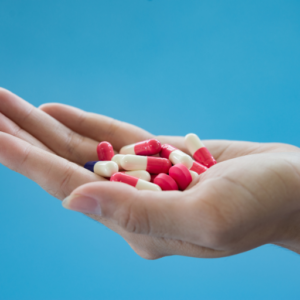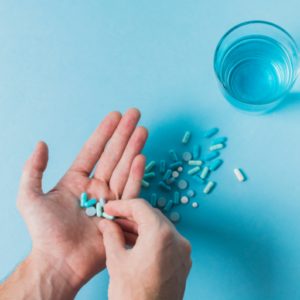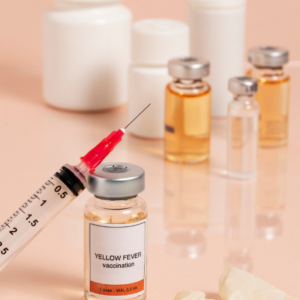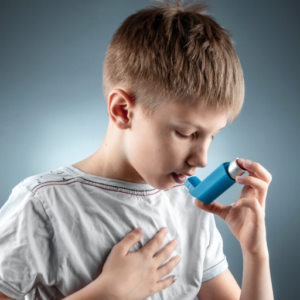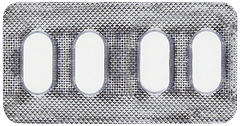Vorier-200mg
| Package | Per tablet | Savings | Price |
|---|---|---|---|
| 24 tablets | $22.88 | $177 | $726 $549 |
| 20 tablets | $23.55 | $134 | $605 $471 |
| 16 tablets | $23.94 | $101 | $484 $383 |
| 12 tablets | $25.42 | $58 | $363 $305 |
| 8 tablets | $27.25 | $24 | $242 $218 |
| 4 tablets | $30.30 | – | $121 |
What is this medicine?
VORIER 200 mg Tablet contains Voriconazole, an antifungal medicine. It is used to treat serious fungal infections such as aspergillosis, candidemia, esophageal candidiasis, and certain rare fungal infections. Voriconazole works by stopping the growth of fungi.
What should I tell my health care provider before I take this medicine?
They need to know if you have any of these conditions:
-
Liver disease
-
Kidney disease
-
History of heart rhythm disorders (such as QT prolongation)
-
Electrolyte disturbances (low potassium, magnesium, or calcium)
-
Visual disturbances
-
Weakened immune system (such as HIV/AIDS, cancer, or transplant patients)
-
History of skin cancer
-
Galactose intolerance or Lapp lactase deficiency
-
An unusual or allergic reaction to voriconazole, other antifungals, or any other medications
-
Pregnant or trying to get pregnant
-
Breast-feeding
How should I use this medicine?
Take this medicine by mouth at least 1 hour before or 1 hour after meals with a full glass of water. Follow the directions on your prescription label. Take at the same time each day.
Take your doses at regular intervals. Do not take your medicine more often than directed. Do not stop taking this medicine except on the advice of your doctor or health care professional.
Overdosage: If you think you have taken too much of this medicine, contact a poison control center or emergency room at once.
What if I miss a dose?
If you miss a dose, take it as soon as you can. If it is almost time for your next dose, take only that dose. Do not take double or extra doses.
What may interact with this medicine?
-
Rifampin
-
Carbamazepine, phenytoin (used for seizures)
-
Efavirenz (HIV treatment)
-
Rifabutin, rifapentine (antibiotics)
-
Ergotamine or dihydroergotamine
-
Sirolimus
-
Quinidine
-
Some cholesterol-lowering medicines (like simvastatin)
-
Cyclosporine, tacrolimus (immunosuppressants)
-
Warfarin or other anticoagulants
-
Oral contraceptives
-
Methadone
-
Some anti-diabetes medicines
This list may not describe all possible interactions. Give your health care provider a list of all the medicines, herbs, non-prescription drugs, or dietary supplements you use. Also tell them if you smoke, drink alcohol, or use illegal drugs. Some items may interact with your medicine.
What should I watch for while using this medicine?
-
Visit your doctor or health care professional for regular monitoring, especially liver function tests, kidney function, and vision exams.
-
Avoid direct sunlight or UV exposure. Wear protective clothing and use sunscreen, as this medicine can increase your risk of sunburn or skin cancer.
-
Report any changes in vision, such as blurred vision, seeing spots, or color changes.
-
Inform your doctor if you experience signs of liver problems such as yellowing of the skin/eyes, dark urine, or persistent nausea.
-
Avoid driving or using machinery if you experience visual or neurological symptoms (like dizziness or hallucinations).
-
Women should avoid becoming pregnant while taking this medicine. Use effective contraception during treatment and for some time after stopping (as directed by your doctor).
What side effects may I notice from this medicine?
Side effects that you should report to your doctor or health care professional as soon as possible:
-
Allergic reactions: rash, itching, swelling of the face/lips/tongue/throat
-
Visual changes (blurred vision, color changes, sensitivity to light)
-
Irregular heartbeat or chest pain
-
Hallucinations or confusion
-
Seizures
-
Liver problems: yellowing of skin/eyes, dark urine, persistent fatigue
-
Skin sensitivity to sunlight, sunburn, or unusual skin growths
-
Severe skin rash or blistering
Side effects that usually do not require medical attention (report if they persist or are bothersome):
-
Headache
-
Nausea or vomiting
-
Diarrhea
-
Mild rash
-
Stomach pain
-
Dizziness
This list may not describe all possible side effects. Contact your doctor or pharmacist for medical advice.
Where should I keep my medicine?
-
Keep out of the reach of children.
-
Store at room temperature between 20 and 25 degrees C (68 and 77 degrees F).
-
Protect from moisture and light.
-
Do not store in the bathroom.
-
Keep in the original packaging until use.
-
Throw away any unused medicine after the expiration date or as directed by your pharmacist.







